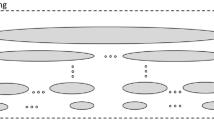Abstract
Formal design supported by automated reasoning can help keep track of requirements—a particular problem for large, detailed systems. Designers of system specifications are often constrained by codes of practice and must show not only that these have been observed but also demonstrate how that has been achieved. This is especially important in safety-critical systems where sections of the requirements will be regulations or guidelines. Using a “lightweight” approach, where formal proofs are used to support rather than guarantee adherence to requirements, we have developed an interactive system for formalising and managing information in codes of practice from the offshore oil industry. As a design proceeds, relevant requirements are found automatically and checked before being notified to the designer with an accompanying explanation of whether or not they are currently satisfied. Progress in satisfying requirements is monitored automatically and contributing choices are recorded. Such evidence of adherence to guidelines may be useful in checking the validity of the design. It may also provide useful reference material during subsequent system modification by drawing attention to the implications that changes will have on key parts of the codes of practice.
Similar content being viewed by others
References
Clocksin, W.F. and Mellish, C.S. 1994. Programming in Prolog (4th edition). Springer Verlag.
Robertson, D. 1996. Domain Specific Problem Description. Proc. of the 8th International Conference on Software Engineering and Knowledge Engineering.
Shell, 1992. Emergency Shutdown and Process Trip Systems. Shell Expro Internal Code of Practice.
Shell, 1993. Fire and Gas Detection and Alarm Systems for Offshore Installations. Shell Expro Internal Code of Practice.
Offshore Installations: Guidance on Design, Construction and Certification. HMSO, 1993.
Pfleeger, S.L. and Hatton, L. 1996. How do formal methods affect code quality? to be published in IEEE Computer.
Robertson, D. 1995. Lightweight specification. Proc. of the ONR/ARPA/AFOSR/ARO/NSF Workshop on Software Architectures, Monterey, California.
Author information
Authors and Affiliations
Rights and permissions
About this article
Cite this article
Hesketh, J., Robertson, D., Fuchs, N. et al. Lightweight Formalisation in Support of Requirements Engineering. Automated Software Engineering 5, 183–210 (1998). https://doi.org/10.1023/A:1008669014807
Issue Date:
DOI: https://doi.org/10.1023/A:1008669014807




